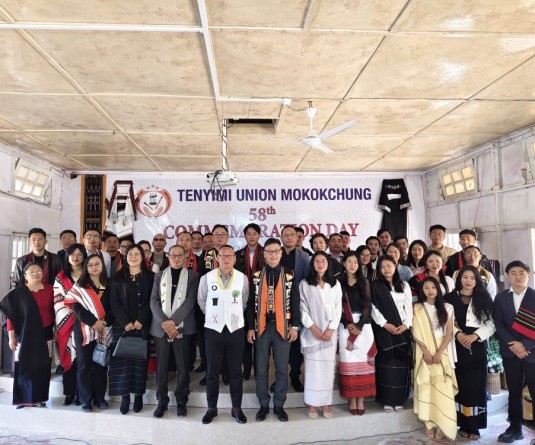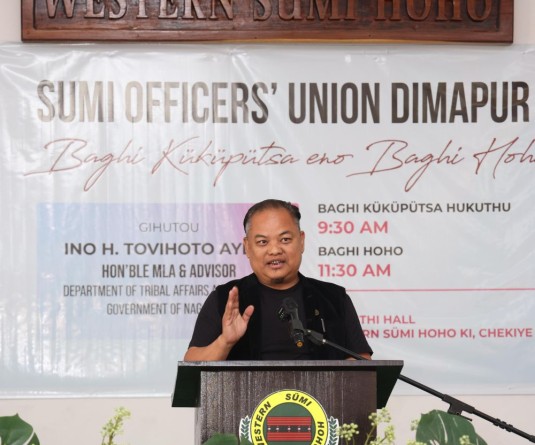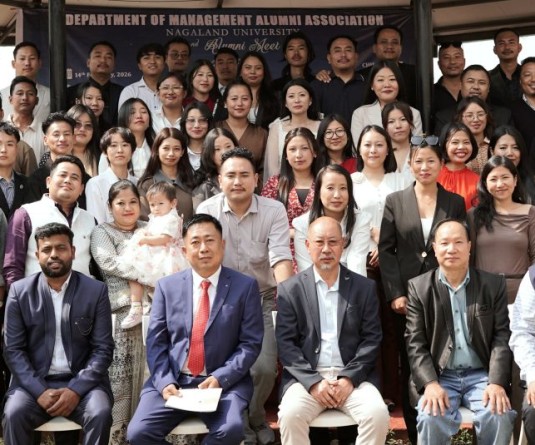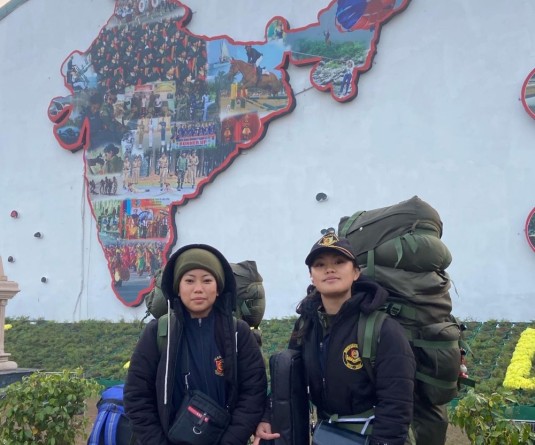
Kohima, October 24 (MExN): A National webinar on ‘intellectual property rights for academic and research visibility’ was organised by the Department of Sociology, St Joseph’s college (Autonomous), Jakhama in collaboration with Cell for IPR Promotion & Management (CIPAM), Department of Promotion of Industry and Internal Trade, Ministry of Commerce & Industry on October 22 and 23.
Dr Fr George Keduolhou Angami, Principal, SJC in his opening remark highlighted the importance and potential of the webinar, stated a press release from the college.
Keynote speaker, Pearl Sobti, Assistant Vice-President, CIPAM elucidated the importance to know Intellectual Property (IP) rights. She introduced the development and main tenets of CIPAM, mentioning the National IPR Policy 2016.
Following IP as a tool, she briefly explained the types of IPR and its benefits for academic institutions. Then she went on to expound the contribution of IPR in Par with ARIIA ranking, in light with the benefits of filing patent over publications.
Pearl said that inadequate Intellectual Property Rights (IPR) awareness and lack of IPR protection are the main limitations that are evident in our system. She emphasized the importance and benefits of copyright and patent in the realm of intellectuals, researchers, students and institutions. Pearl encouraged all to be creators and innovators and also to be owners of their IP.
In the first technical session, Deeksha Arora, Assistant Manager, CIPAM spoke on ‘Introduction to Intellectual Property Rights’. She mentioned that IPR and Research Ethics are the key dimensions for any academic research and stressed on the awareness and safeguard of IPR. She said that safeguarding one’s own trademark would promote original product and encouraged the attendees to think outside the box and to be innovative. She also stressed on the types and importance of IPR in the academic world.
The second speaker, Dr Vikram Kumar Sharma, University Librarian, Assam University spoke on ‘Intellectual Property Rights and Research Ethics.’ He mentioned the importance of conducting research ethically as the pre-requisite and the foundation of a good academic research. He emphasized on maintaining high integrity with consistency, keeping in mind the objectives and taking care of all the legal norms that would lead to responsible publications in the academic field.
In the second technical session, Prof Pravakar Rath, Head, Department of Library and Information Science, Mizoram University spoke on ‘Academic Integrity and Prevention of Plagiarism for Academic and Research Development’. He emphasized on the need for intellectual honesty and academic integrity where plagiarism plays a very important role in initiating a reliable and dependable academic and research output of HEIs.
He also highlighted the UGC notification with regards to promotion of Academic Integrity and Prevention of Plagiarism (detection tools/anti-plagiarism software) and referencing style. Prevention and Repercussion of plagiarism and why research scholars need to follow these standard ethics was also stressed upon.
Dr Nihar K Patra, University Librarian, Manipur University, Imphal spoke on ‘The Big 3 in IPR: Copyrights, Patents and Trademarks.’ He accentuated on the tangible and intangible types of property. An intensive coverage was done on Industrial Property and Copyrights. Under the Industrial Property, trademarks and patents (Information and Innovation) were discussed upon and under Copy Rights; issues with regard to the rights of the authors and right of performance were thoroughly discussed. Dr Nihar also discussed on the registration process in India of Copyrights, Patents, and Trademarks.
In the valedictory session, Dr Fr George Pezhalhoukho, PG Coordinator, SJC enlightened the attendees to know and pursue IPR. From the collaborator, N Subramanian, Assistant Manager, CIPAM enlightened the participants on the awareness and benefits of IP and the importance of commercialization of opportunities within and outside the institution.
The webinar was attended by around 490 participants consisting of students, staff, researchers, and academicians from the college and across the country.






